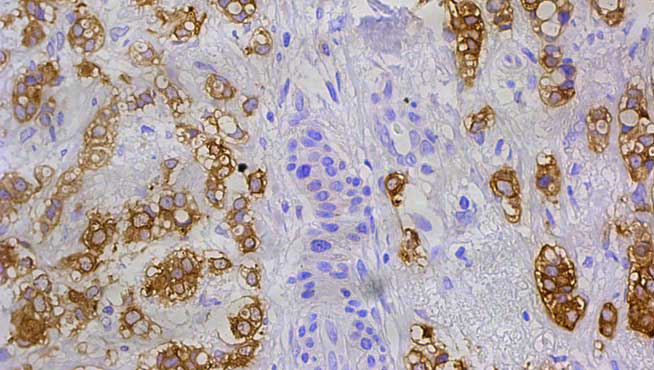Kristina Havas Cavalletti Lab

Kristina Havas Cavalletti
Born in New York in 1976, Kristina has always been curious about the natural world around her. Following a high school science fair, Kristina was offered the opportunity to spend the summer in a laboratory at the local university. It was during this summer that Kristina first experienced life in a true science lab, and she has rarely looked back since.
Kristina graduated from The Pennsylvania State University in 1999. During her time at Penn State Kristina worked in the lab of Jerry Workman. Her time in the Workman lab lead to her desire to understand how chromatin was regulated to shape gene expression.

Metabolism, epigenetics, and breast cancer
The Havas lab investigates metabolic reprogramming during the initiation, progression and response of breast cancer using in vivo animal model systems and ex vivo organotypic cultures. We aim to understand how both genetic context and the local environment, shape metabolic reprogramming in breast cancer. Specifically, we are interested in understanding the extent of metabolic plasticity throughout the evolution of breast cancer, from disease onset up to and including therapeutic response. Through more thorough understanding of this key hallmark of breast cancer we aim to design strategies for more effective patient treatment.
Last publications
- Havas K, Stolte J, Milchevskaya V, Klaus B, Patil KR, Sotillo R, Jechlinger M.
Metabolic Shifts in Residual Breast Cancer Drive Tumor Recurrence
submitted - Trerotola M., Tripaldi R., Sacchetti A., Havas K., Simeone P., Guerra E., Relli V., La Sorda R., Aloisi A.L., Lattanzio R., Piantelli M. and Alberti S.
Trop-2 activates a ubiquitous, dormant layer of cancer growth rooted on PKC, CD9 and cytoskeletal scaffolding
submitted - Capitani M, Saade F, Havas KM, Angeletti M, Concetti F, Agas D, Sabbieti MG, Concetti A, Venanzi FM, Petrovsky N.
Plasmids encoding protein aggregation domains act as molecular adjuvants for DNA vaccines.
Curr Gene Ther. 2014;14(3):161-9.